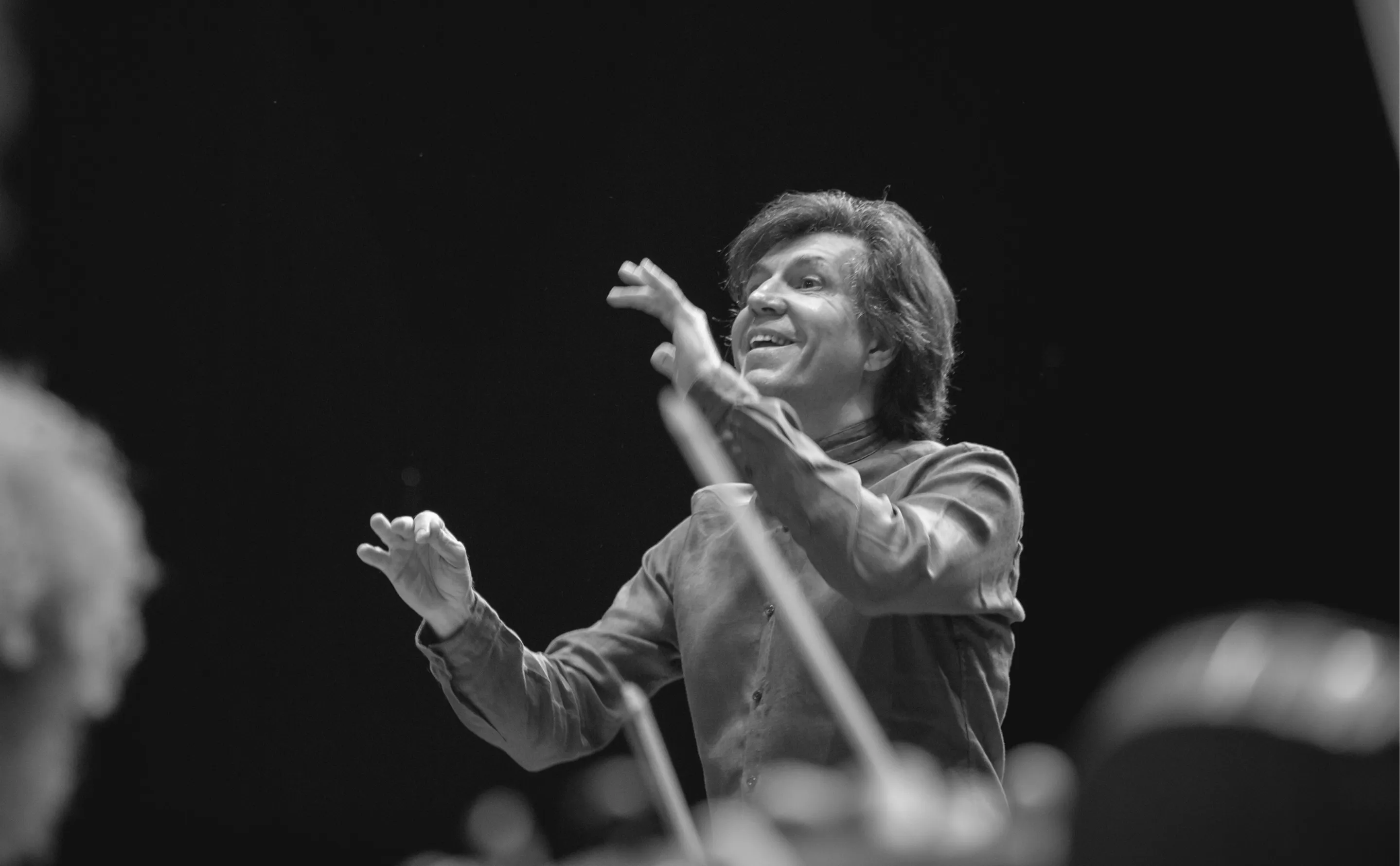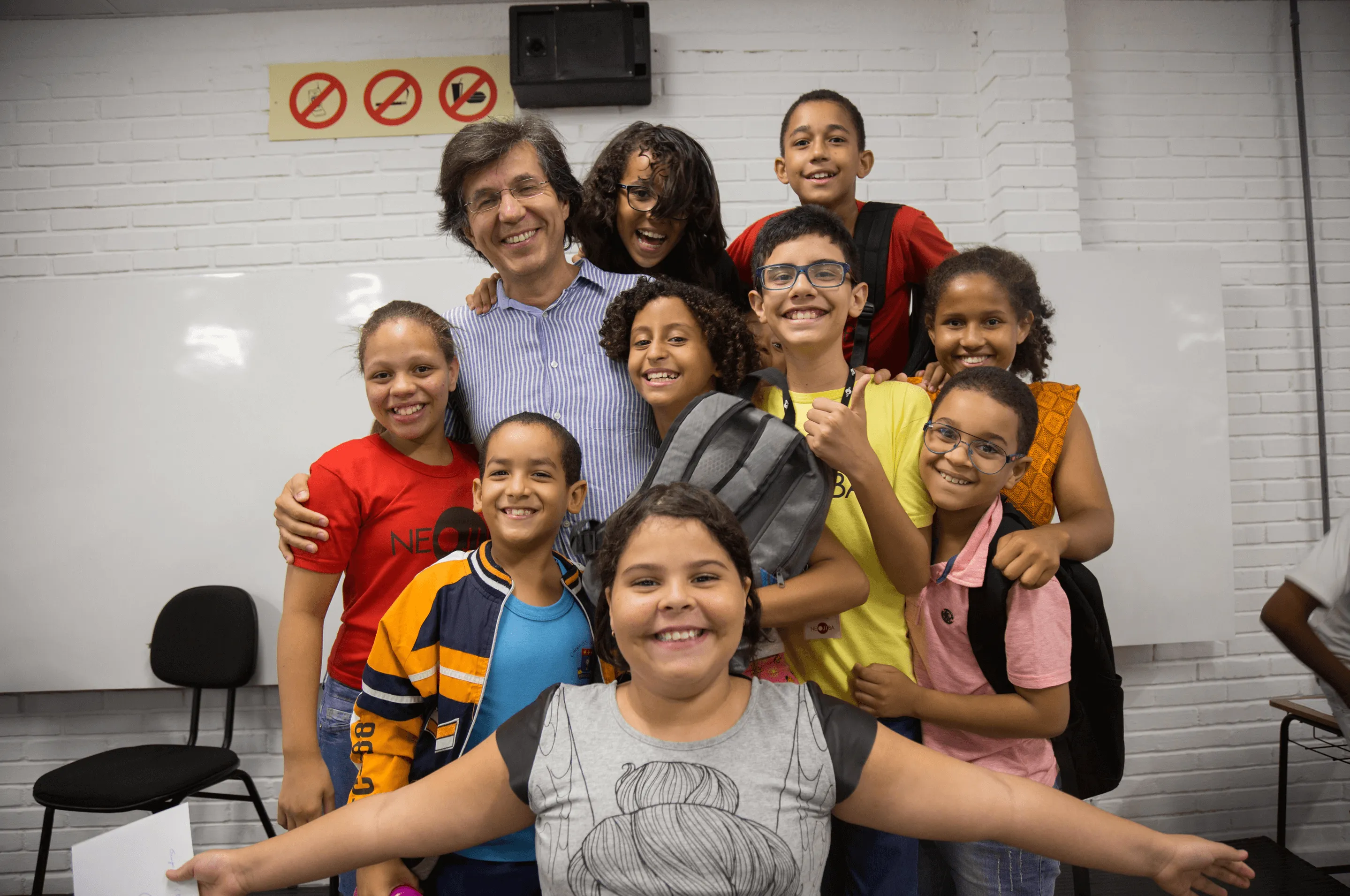
ABOUT
"Culture is not built from above. It rises when we invest in people"
"Culture is not built from above. It rises when we invest in people"
Born in Vitória da Conquista, Bahia, Ricardo Castro is a pianist, conductor, educator, and cultural leader, with a life dedicated to the transformative power of music. For nearly five decades, his artistic journey has spanned the world’s great concert halls, classrooms, and social initiatives — from solo performances with renowned orchestras to visionary projects that shape new generations.
Castro gave his first public performance at the age of four and was soon admitted to the School of Music at the Federal University of Bahia, where he studied under Esther Cardoso, a distinguished disciple of Marguerite Long. His early years were marked by exceptional musicality and an insatiable passion for discovery — a trait that would become a constant throughout his career.
At 19, he moved to Europe and entered the Geneva Conservatory, where he studied piano with Maria Tipo and conducting with Arpad Gerecz. He quickly gained international recognition, winning first prizes in competitions such as the Rahn Competition (1985), the Pembaur Prize (1986), the ARD Competition in Munich (1987), and the Géza Anda Competition in Zurich (1988). His artistic development deepened in Paris, where he studied with pianist Dominique Merlet, who became his mentor.
In 1993, he won the Leeds International Piano Competition, becoming the first and only South American to receive this honor. The victory led to performances with orchestras such as the Gewandhaus Orchestra of Leipzig, the Tonhalle Orchestra of Zurich, and the BBC Philharmonic, as well as collaborations with figures like Sir Simon Rattle, Martha Argerich, and Maria João Pires.
His work extends far beyond the stage into conducting, education, and cultural entrepreneurship. In 2007, he founded NEOJIBA (State Youth and Children’s Orchestras of Bahia), a pioneering social program offering free orchestral and choral training to thousands of children and young people throughout Bahia. Through this initiative, he has become an international reference in social transformation through music.
Castro has conducted NEOJIBA orchestras in acclaimed performances across Europe and the Americas, including venues such as the Concertgebouw in Amsterdam, the Philharmonie de Paris, and the Santa Cecilia in Rome.
Alongside his artistic and social commitments, he maintains a strong dedication to education. He has taught piano in Switzerland since 1992, first at HEMU, and since 2020 at the Haute École de Musique de Genève (HEM), where he is currently Head of the Keyboard Department. At the Scuola di Musica di Fiesole in Italy, he teaches conducting from the keyboard, combining interpretative insight with musical leadership.
Ricardo Castro is the only Brazilian Honorary Member of the Royal Philharmonic Society, the same institution that commissioned Beethoven’s Ninth Symphony and counts Brahms, Stravinsky, and Liszt among its historic members.
More than just a performer, he is a connector of worlds — bridging generations, geographies, and musical traditions. His career embodies a synthesis of excellence, imagination, and social commitment, offering a powerful model of what it means to be a 21st-century musician.
Nascido em Vitória da Conquista, Bahia, Ricardo Castro é pianista, maestro, educador e líder cultural, com uma vida dedicada ao poder transformador da música. Há quase cinco décadas, sua trajetória artística atravessa as grandes salas de concerto do mundo, salas de aula e iniciativas sociais — da atuação como solista com orquestras de renome a projetos visionários que moldam novas gerações.
Castro fez sua primeira apresentação pública aos quatro anos e, pouco depois, foi admitido nos Seminários de Música da Universidade Federal da Bahia, sob a orientação de Esther Cardoso, destacada discípula de Marguerite Long. Seus primeiros anos foram marcados por uma musicalidade excepcional e uma paixão pela descoberta, traço que se tornaria constante em sua carreira.
Aos 19 anos, mudou-se para a Europa e ingressou no Conservatório de Genebra, onde estudou piano com Maria Tipo e regência com Arpad Gerecz. Rapidamente ganhou destaque internacional, conquistando os primeiros prêmios em competições como o Concurso Rahn (1985), o Prêmio Pembaur (1986), o Concurso ARD de Munique (1987) e o Concurso Géza Anda em Zurique (1988). Sua formação artística se aprofundou ainda mais em Paris, ao lado do pianista Dominique Merlet, que se tornaria seu mentor.
Em 1993, venceu o Concurso Internacional de Piano de Leeds, tornando-se o primeiro e único sul-americano a conquistar esse prêmio. A vitória o levou a apresentações com orquestras como a Gewandhaus de Leipzig, a Tonhalle de Zurique e a BBC Philharmonic, além de colaborações com figuras como Sir Simon Rattle, Martha Argerich e Maria João Pires.
Sua atuação ultrapassa o palco e se estende à regência, à educação e ao empreendedorismo cultural. Em 2007, fundou o NEOJIBA (Núcleos Estaduais de Orquestras Juvenis e Infantis da Bahia), um programa social pioneiro que oferece formação orquestral e coral gratuita a milhares de crianças e jovens em toda a Bahia. Com esse trabalho, tornou-se referência internacional na área de transformação social por meio da música.
Castro já conduziu orquestras do NEOJIBA em apresentações aclamadas na Europa e nas Américas, incluindo salas como o Concertgebouw de Amsterdam, a Philharmonie de Paris e a Santa Cecilia de Roma.
Em paralelo à atuação artística e social, mantém forte compromisso com a educação. Leciona piano desde 1992 na Suíça, inicialmente na HEMU (Lausanne, Valais, Fribourg) e, desde 2020, na Haute école de musique de Genève, onde é atualmente o chefe do Departamento de Teclado. Na Scuola di Musica di Fiesole, na Itália, ensina regência a partir do piano, unindo visão interpretativa e liderança musical.
Ricardo Castro é o único brasileiro Membro Honorário da Royal Philharmonic Society, a mesma instituição que encomendou a Nona Sinfonia de Beethoven e que inclui, entre seus membros históricos, Brahms, Stravinsky e Liszt.
Mais do que um intérprete, é um conector de mundos — entre gerações, geografias e tradições musicais. Sua trajetória representa uma síntese entre excelência, imaginação e compromisso social, e oferece um modelo potente do que pode ser um músico do século XXI.

